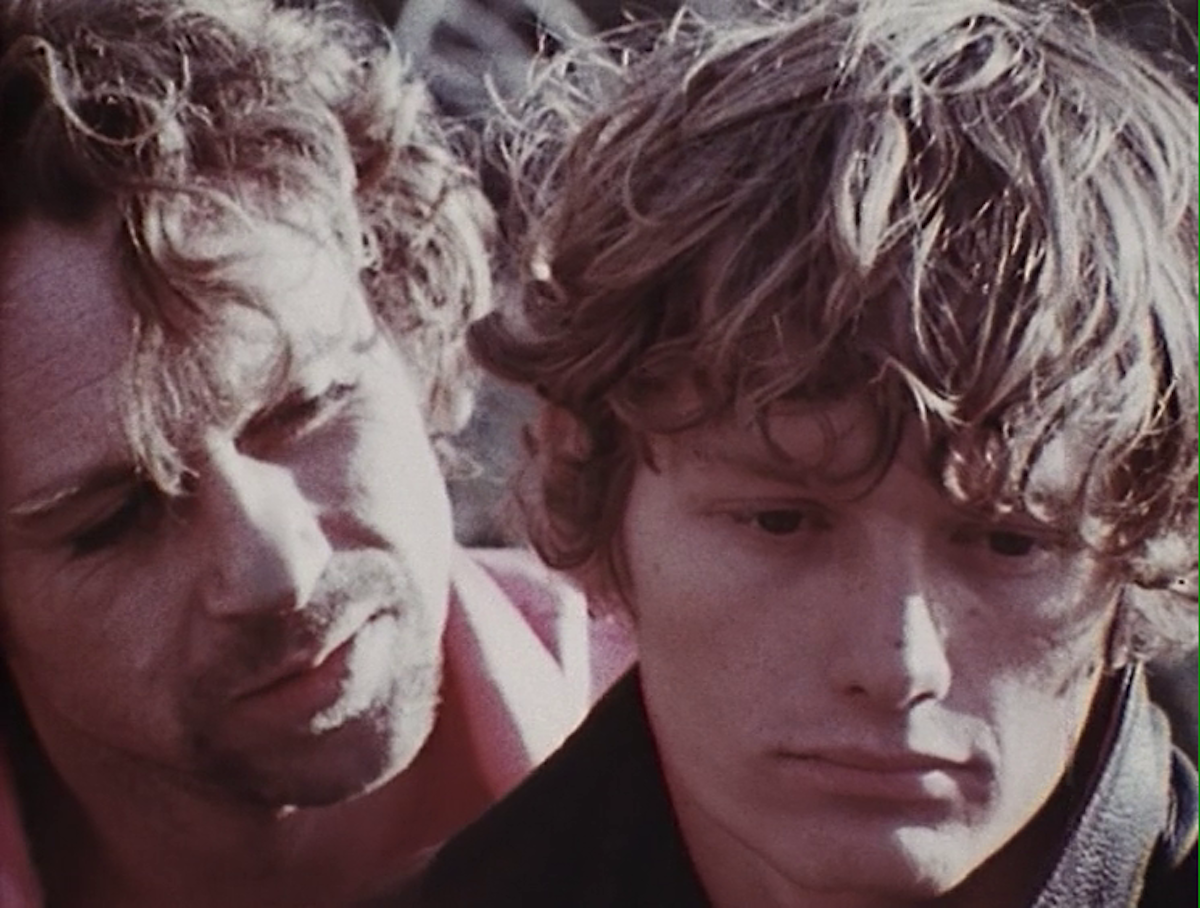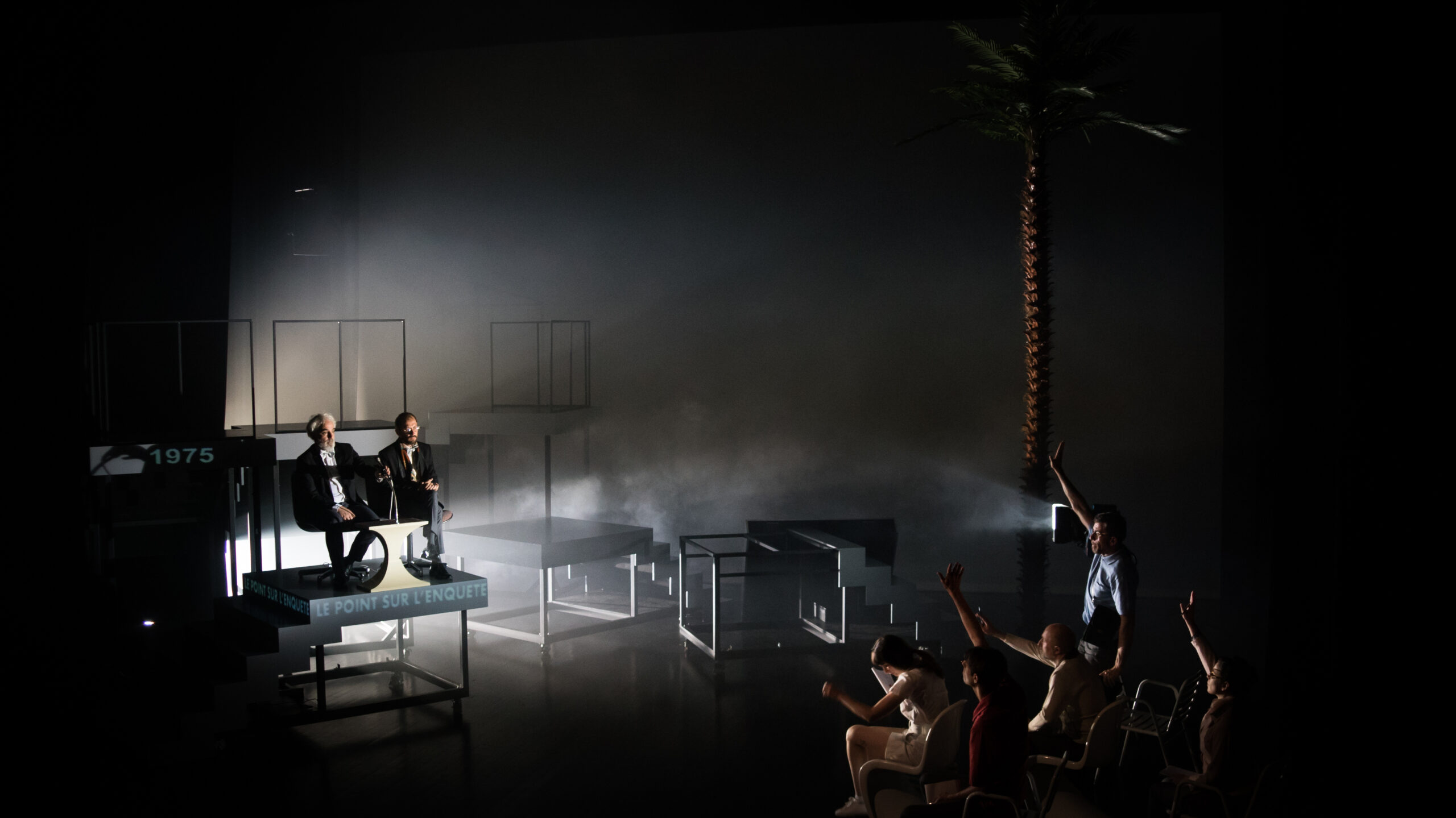by Caden Mark Gardner Lonesome Cowboys was shot in the Arizona winter of 1968, a year before Easy Rider became the counterculture crossover hit to polarize America, months […]
Rice Krispies for a Revolution – Blu Review: ‘The Edge/Ice’ by Robert Kramer (Re:Voir Video)
by Jack Seibert How many French critics does it take to release an American movie? Somewhere in the dozens, if the movie is Robert Kramer’s The Edge. Cahiers […]
Communing in a Corporatized University: ‘Manifesto’ (2020) by Ane Hjort Guttu
by Tomáš Hudák In her latest short film Manifesto, awarded the Dutch critics’ KNF Award at IFF Rotterdam, artist and filmmaker Ane Hjort Guttu examines the institution of […]
Book Review: ‘Honor Among Thieves: The Cinema of Jean-Pierre Melville’ by Andrew Dickos
Honor Among Thieves: The Cinema of Jean-Pierre Melville is a well-researched and written primer for one of French cinema’s greatest mad mercenaries and lionhearts.
Cannes 39/90/? — An Interview with Étienne Gaudillère
by Yoana Pavlova If the invention of cinema towards the end of the XIX century is the crowning achievement of man’s attempts to master reality, the XX century […]
Two Short Films by Atoosa Pour Hosseini, A Report from LUMINOUS VOID: Twenty Years of Experimental Film Society at the Project Arts Centre
Atoosa Pour Hosseini is intent on depicting and blurring notions of performed art and documentary footage with mythic and deconstructed imagery, and the Holocene mingled with the Anthropocene.
Essay: Urban Landscapes and Modernity in Kitchen Sink Realism
In 1962, film critic and theorist Victor Perkins of Movie magazine complained of ‘landscape mongering’ in the English films of the late 1950s/early 1960s – they were part of a movement known as Kitchen Sink Realism.
Berlinale Shorts 2021
On the occasion of the 71st Berlinale, Camilla Peeters and Jack Seibert share their thoughts on selections from this year’s Berlinale Shorts. This year the festival is being held June 9-20 (instead of the usual dreary February) as a ‘summer special’, holding in-person screenings via various open-air kinos throughout the city.
Review: “I am thinking of you [in Streams]” – ‘Bella’ (2020), dir. Thelyia Petraki
Love might be felt in streams – at times, continuous, and yet, in spaced flashes once memory is called to speak.
Essay: A Time For Many Words – Canon Formation, National Unity and ‘The Travelling Players’
Invariably, any appraisal of Theodoros Angelopoulos’ 1975 film The Travelling Players makes note of its length—230 minutes, to be precise—as well as it’s ostentatious style—it consists of just 80 shots, almost all of which are sequence shots and hardly any are tighter than a medium close-up.









![Review: “I am thinking of you [in Streams]” – ‘Bella’ (2020), dir. Thelyia Petraki](https://ultradogme.com/wp-content/uploads/2021/06/bella-1-copy.jpg)
